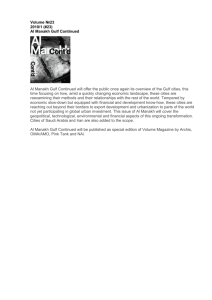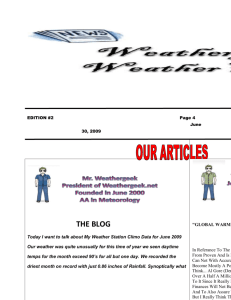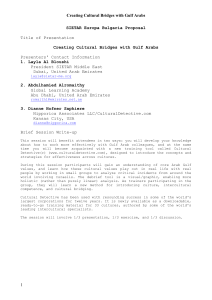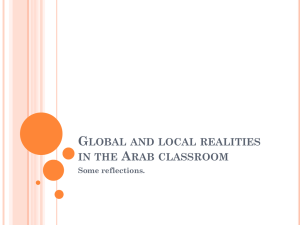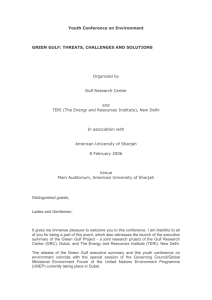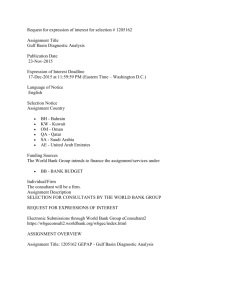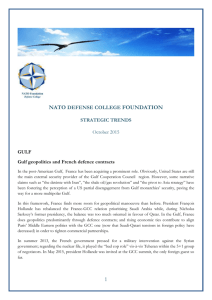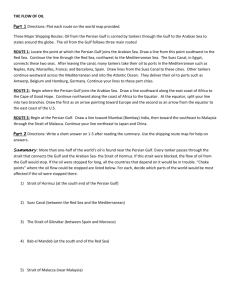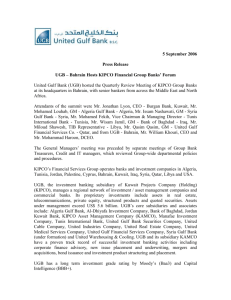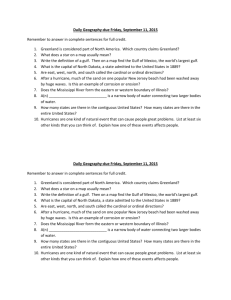The 2012 Gulf Studies Conference - College of Social Sciences and
advertisement
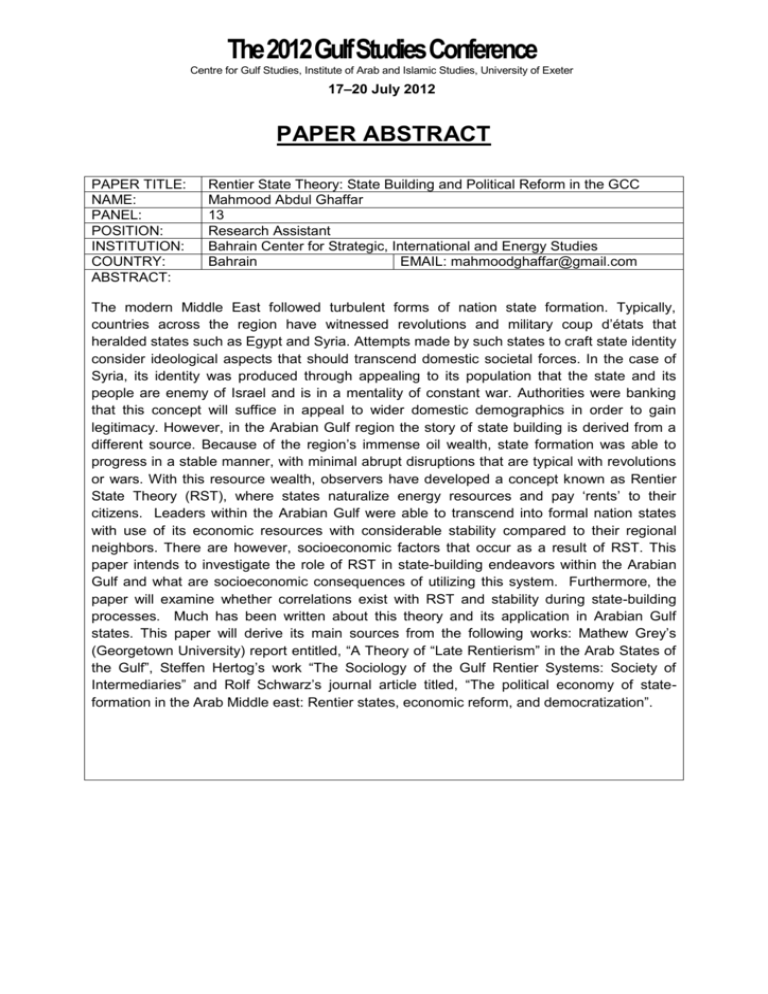
The 2012 Gulf Studies Conference Centre for Gulf Studies, Institute of Arab and Islamic Studies, University of Exeter 17–20 July 2012 PAPER ABSTRACT PAPER TITLE: NAME: PANEL: POSITION: INSTITUTION: COUNTRY: ABSTRACT: Rentier State Theory: State Building and Political Reform in the GCC Mahmood Abdul Ghaffar 13 Research Assistant Bahrain Center for Strategic, International and Energy Studies Bahrain EMAIL: mahmoodghaffar@gmail.com The modern Middle East followed turbulent forms of nation state formation. Typically, countries across the region have witnessed revolutions and military coup d’états that heralded states such as Egypt and Syria. Attempts made by such states to craft state identity consider ideological aspects that should transcend domestic societal forces. In the case of Syria, its identity was produced through appealing to its population that the state and its people are enemy of Israel and is in a mentality of constant war. Authorities were banking that this concept will suffice in appeal to wider domestic demographics in order to gain legitimacy. However, in the Arabian Gulf region the story of state building is derived from a different source. Because of the region’s immense oil wealth, state formation was able to progress in a stable manner, with minimal abrupt disruptions that are typical with revolutions or wars. With this resource wealth, observers have developed a concept known as Rentier State Theory (RST), where states naturalize energy resources and pay ‘rents’ to their citizens. Leaders within the Arabian Gulf were able to transcend into formal nation states with use of its economic resources with considerable stability compared to their regional neighbors. There are however, socioeconomic factors that occur as a result of RST. This paper intends to investigate the role of RST in state-building endeavors within the Arabian Gulf and what are socioeconomic consequences of utilizing this system. Furthermore, the paper will examine whether correlations exist with RST and stability during state-building processes. Much has been written about this theory and its application in Arabian Gulf states. This paper will derive its main sources from the following works: Mathew Grey’s (Georgetown University) report entitled, “A Theory of “Late Rentierism” in the Arab States of the Gulf”, Steffen Hertog’s work “The Sociology of the Gulf Rentier Systems: Society of Intermediaries” and Rolf Schwarz’s journal article titled, “The political economy of stateformation in the Arab Middle east: Rentier states, economic reform, and democratization”.
